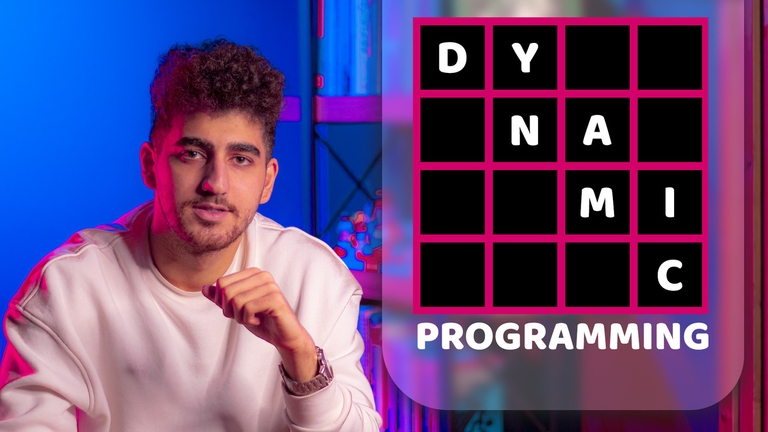In this video, I discuss Dynamic Programming and Memoization. You can watch the video here.

You can also read the blog in text in this blog.
Memoization
Memoization is a performance optimization technique that stores previously computed results to avoid redundant calculations when solving problems. By caching these outcomes, it enhances efficiency and speeds up computations, especially in scenarios involving repetitive calculations or recursive algorithms. This approach optimizes runtime by utilizing stored values instead of recalculating them.
Example
#include <iostream>
using namespace std;
int memo[100]; // Array to store computed Fibonacci numbers
// Function to calculate Fibonacci using Memoization
int fibonacciMemo(int n) {
if (n <= 1) {
return n;
}
if (memo[n] != -1) {
return memo[n]; // If the value is already calculated, return it
}
// If the value is not calculated, compute and store it in the array
return memo[n] = fibonacciMemo(n - 1) + fibonacciMemo(n - 2);
}
int main() {
int n = 10; // Desired Fibonacci number
fill(memo, memo + 100, -1); // Initializing memo array with -1 (uncomputed)
cout << "The " << n << "th Fibonacci number is: " << fibonacciMemo(n) << endl;
return 0;
}
In this code, the memo array stores calculated Fibonacci numbers, reducing redundant calculations and enhancing performance.
Dynamic Programming
Dynamic Programming is a problem-solving method used to solve complex problems by breaking them down into simpler subproblems. It works by solving these smaller subproblems just once and storing their solutions for future use, avoiding redundant computations. This approach typically involves solving problems in a bottom-up manner, starting from simpler cases and building up to the more complex ones. Dynamic Programming optimizes efficiency by reusing calculated results, drastically reducing the overall computational load. It's commonly used for optimization problems and often involves iterating through smaller instances to solve larger ones.
Example
#include <iostream>
using namespace std;
int fib[100]; // Array to store computed Fibonacci numbers
// Function to pre-process (calculate) Fibonacci numbers using Dynamic Programming
void pre_process(int n) {
fib[0] = 0;
fib[1] = 1;
for (int i = 2; i <= n; i++) {
fib[i] = fib[i - 1] + fib[i - 2]; // Calculating Fibonacci numbers iteratively
}
}
// Function to get Fibonacci number using Dynamic Programming
int fibonacciDP(int n) {
return fib[n]; // Returning the pre-computed Fibonacci number
}
int main() {
int n = 10; // Desired Fibonacci number
pre_process(n); // Pre-calculate Fibonacci numbers up to 'n'
cout << "The " << n << "th Fibonacci number is: " << fibonacciDP(n) << endl;
return 0;
}
In this example, the fib array is pre-calculated using an iterative approach, enabling quick access to Fibonacci numbers for problem-solving.
Next video
In my upcoming video, I'll dive into problem-solving using DP techniques. I show exactly how to approach DP problems. I am going to do this based on the comments I received from you.
Support?
If you found this content helpful, your support means a lot. Your simple acts of liking the video and subscribing to the channel bring me so much motivation. Your support truly helps in boosting my work and encourages me to keep creating more valuable content.
Sharing your thoughts, questions, or feedback through comments not only helps me improve but also increases the visibility of this content within the Codeforces community. Let's keep the conversation lively and engaging for everyone!
Thank you for being a part of this!
Join the Discord server here to discuss these topics further, share problems, and discuss with legends I interview with.











Shayan orz
Why dont you make some videos on harder topics that don't have any video explanations? It looks like you have the time to put effort into your videos and the skill to teach harder topics (judging by your rating). What is the point of making videos which have already been made before by 1e6 people?
The problem with this is that when you post a video of harder topics they have the requirement that you must know the easier topics, and sometimes the teacher wants to teach things in his own way and can't recommend some beginner course for those who are not familiar. So in my opinion, starting from the very beginning is good as well.
By the way, we have same ratings.
First, thank you for your feedback. I truly appreciate these comments and they are going to help me.
I'm on the same page with you about it. I haven't added any significant value so far. Let me explain my plan to you.
Right now, I'm building the foundation by starting with the basics and gradually moving toward more complex topics.
For example, I want to construct a playlist on DP to help people 'mastering' it, not just get familiar with it. This video is the first video on this playlist. My next video which will be released this week, is solving two intermediate problems on this topic.
There are two reasons I'm doing this:
I'm open to discussing this further with you. I checked your profile and it seems you have good opinions about stuff. Do you think this is the right way forward?
Also, I've created two videos on centroid that are not for beginners. They're sort of prototypes for the harder topics I plan to cover. You can check them out as well.
It would be nice if you could do them both at same time if you have the time for it Because as you said were an IOI coach so I think you teaching a bit harder and advanced algorithms and techniques can be really useful.
That's a good idea. Maybe I can do beginner and advanced materials at the same time.